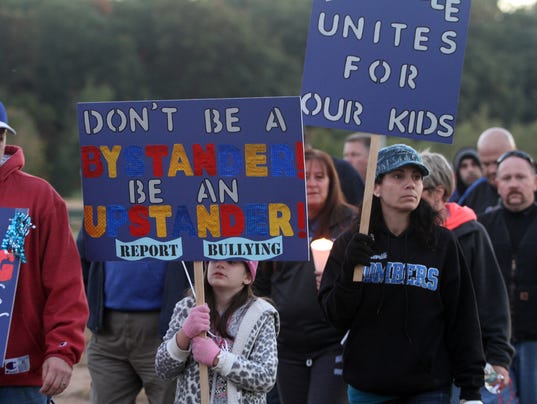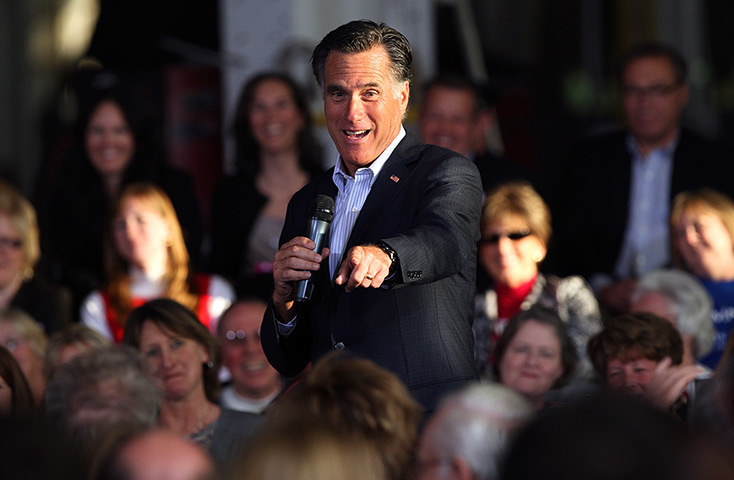Just think: Sayreville, NJ is
a borough that dates back to the beginnings of this country, but until last
week you may never have heard of it. Even though it was home to luminaries like
rocker Jon Bon Jovi and actors Dule Hill (The
West Wing) and Greg Evigan (My Two
Dads), nothing exceptional calls attention to this town of under 50,000
residents. We know it is a majority Democratic town that strongly supported
Barack Obama, but voted mostly for Chris Christie for Governor. We now know that football is something of an
obsession in Sayreville, even though the Friday night lights are now dimmed
indefinitely.
That’s because we also now
know that several high school football players allegedly sexually assaulted
other students on school property. How
to put this delicately: Let’s just say the alleged perpetrators digitally
penetrated the alleged victims. High school students. In the locker room.
Seven of the accused have now
been charged in the attacks. Three of
them face aggravated sexual assault, criminal restraint and hazing charges. The
other four are charged with aggravated criminal sexual contact. All have been
suspended from school, and the Sayreville Superintendent, Richard Labbe, has
publicly stated that he is not sure if the football program will be reinstated.
The local prosecutor is reportedly weighing options as to whether he
will attempt to try the seven boys as adults.
Here is what I know for sure,
and I do not have to be familiar with Sayreville to state this: These boys knew
exactly what they were doing. Their age has nothing to do with it. When a group
of people band together to restrain another person so that they can use their
fingers to penetrate the victim’s body, everyone involved knows that what they
are doing is wrong.
Here is what else I know: When that same group of people
commits the act repeatedly, there is clear intent to harm the victims. Intent
to harm and commission of sex crimes are very adult behaviors. Reportedly, there were four separate incidents
in the Sayreville locker room, and authorities now want to know who else on the
team witnessed the attacks on the younger players. The perpetrators should be
imprisoned. According to New Jersey law, some of the seven alleged rapists could face up to 20 years in prison.
 |
| Sayreville's longtime coach, George Najjar |
If this were an isolated
incident, it would certainly be horrific enough, but the fact is that similar crimes have
happened in many places in this country, perpetrated by many teenage boys. Last
May, for example, three high school soccer players were convicted of crimes much like the Sayreville incident. The harshest sentence imposed was three months
in a juvenile detention camp. The other two boys got probation. In Greenfield, Iowa last April, members of
the high school wrestling team allegedly punished a younger wrestler for missing practice by restraining him and
penetrating him with a jump rope handle.
CBS New York reported in March that three high school track team members
were accused of violently attacking another student athlete by hitting his
genitals with a bottle and then penetrating him through his clothing with an
object. In August, 2013, five high
school student athletes in a suburb of Chicago were charged with restraining
and digitally penetrating a fellow high school team member. Other similar incidents have been reported at
U.S. high schools, but the pattern is clear.
Also clear is the reluctance
on the part of prosecutors to charge the teens as adults. My guess is that had
said prosecutors been restrained and anally penetrated in a locker room, had
they experienced the terror of a sex crime, the humiliation of being so
victimized, perhaps they would not be so quick to afford these boys the light,
sometimes non-existent sentences they receive. These sex crimes are not rough
housing on the school playground, or bullying in the high school cafeteria.
They are sex crimes. In our society, sex crimes are severely punishable. They
are grownup transgressions that merit jury trials and imprisonment.
 |
| Sayreville vigil for alleged rape victims |
Maybe overexposure, or too
much information too soon in life has contributed to juveniles committing very
adult crimes. Who knows. But let’s not blame parents, schools, television,
movies, music and the Internet. It almost isn’t necessary to figure out who to
blame for 16-year-olds perpetrating heinous sex crimes against their peers.
What is necessary is to make it stop. In my mind, that happens when juveniles
start seeing other juveniles locked up for a long time.
And might it also be time to
take football down from the pedestal we have put it on? Word is that many, many
residents of Sayreville are livid that the superintendent of schools cancelled
the football season. It appears the some townspeople, while not unsympathetic to the
juvenile victims of the sex crimes, are far more passionate when they talk
about their outrage at the
season being prematurely terminated. What is going on that the game of football has become of greater import than the well being of their own children? It is largely varsity athletes that commit these crimes in high schools. What is the message being sent to their peers when these varsity rapists get away with it?
season being prematurely terminated. What is going on that the game of football has become of greater import than the well being of their own children? It is largely varsity athletes that commit these crimes in high schools. What is the message being sent to their peers when these varsity rapists get away with it?
Bottom line: In 2010, almost
10,000 minors were arrested for sex offenses, including rape, according to a report from the FBI. Their punishments and jail
sentences varied from state to state, but it is unlikely that many or any of
them are still in jail today. The numbers are telling us the story. All we have
to do is listen, and act. Keywords: ZERO TOLERANCE.

































